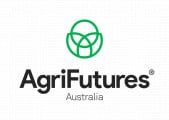AgriFutures Australia

Nosema (N. apis and N. ceranae) and chalkbrood (Ascosphaera apis) are significant honeybee pathogens that reduce hive productivity and cause colony losses. Outbreaks continue to occur and are generally considered consequences of poor environmental conditions and hive management. Nutritional interventions and managing the hive environment are the only strategies for beekeepers but there is limited understanding how these factors connect to disease susceptibility of larvae and adults.
This project aims to use a combination of laboratory, research apiary and field experiments to address these knowledge gaps and improving the use of nutritional interventions in disease management. The research will support the development of integrated, non-chemical strategies to reduce the prevalence and severity of Nosema and chalkbrood diseases.

-crop-850x675.png)
Have questions?
Find answers to our most frequently asked questions on research projects, commercial opportunities, organisations and more.
Still have questions or have feedback on the site? Please get in touch by completing our enquiry form.